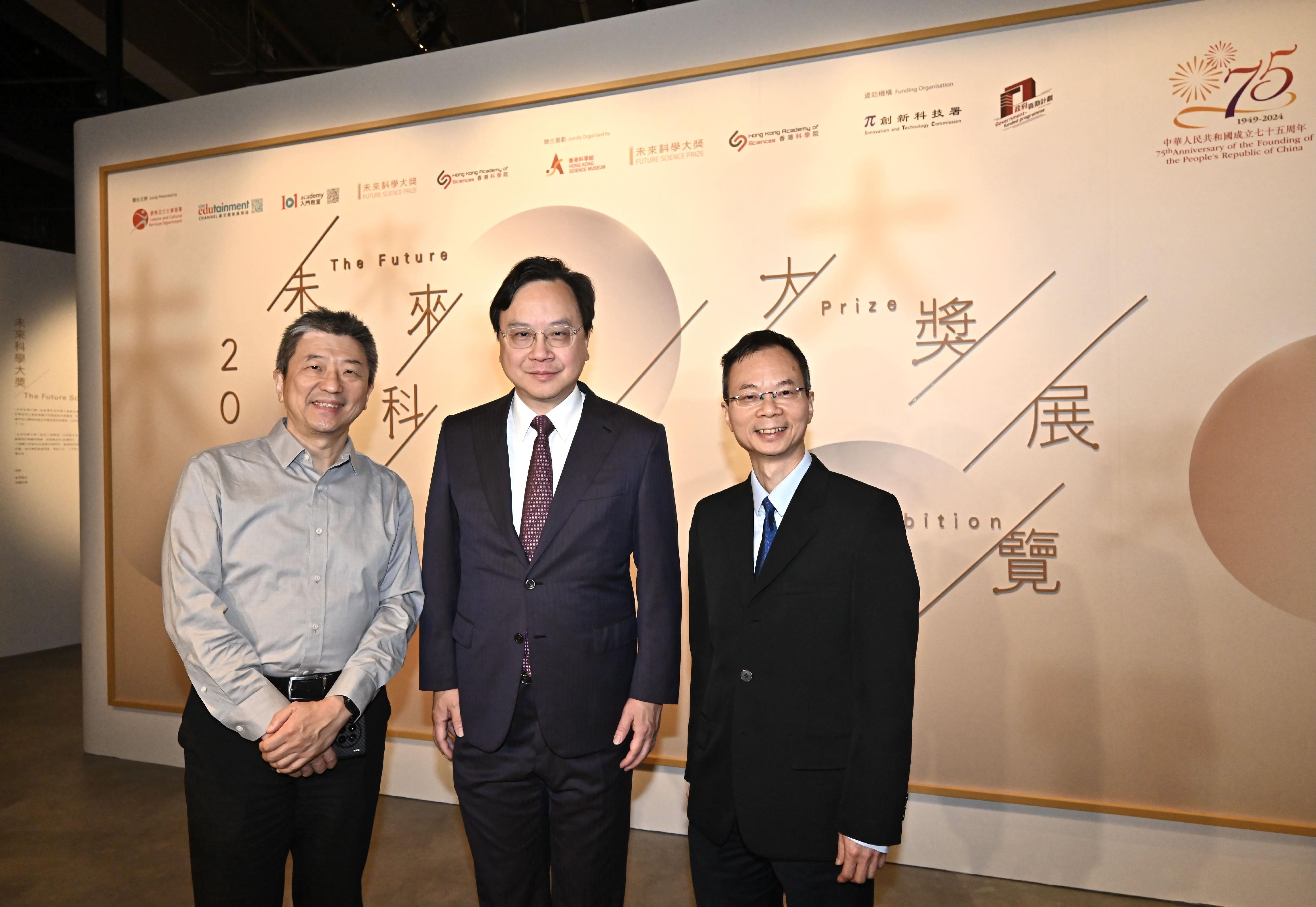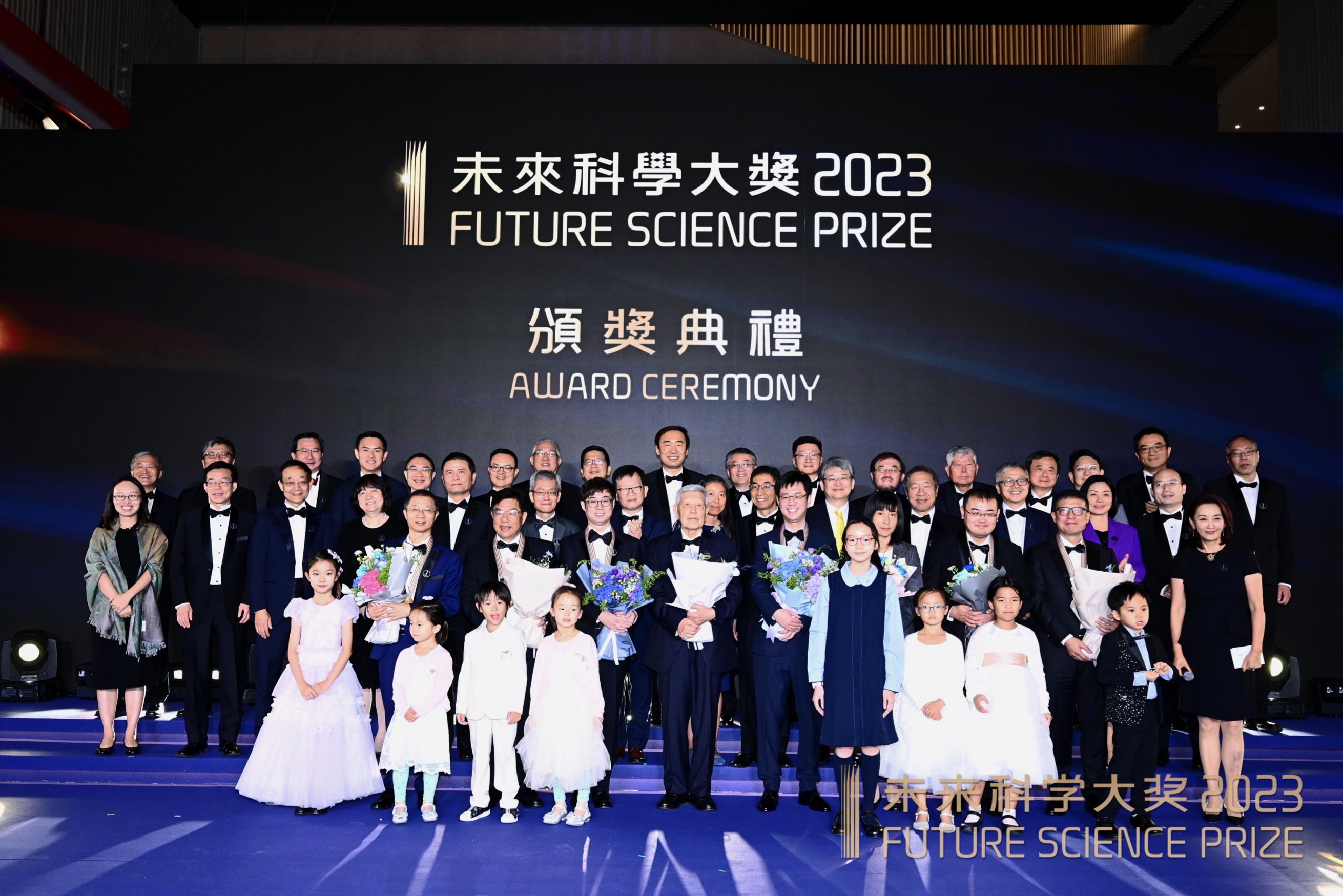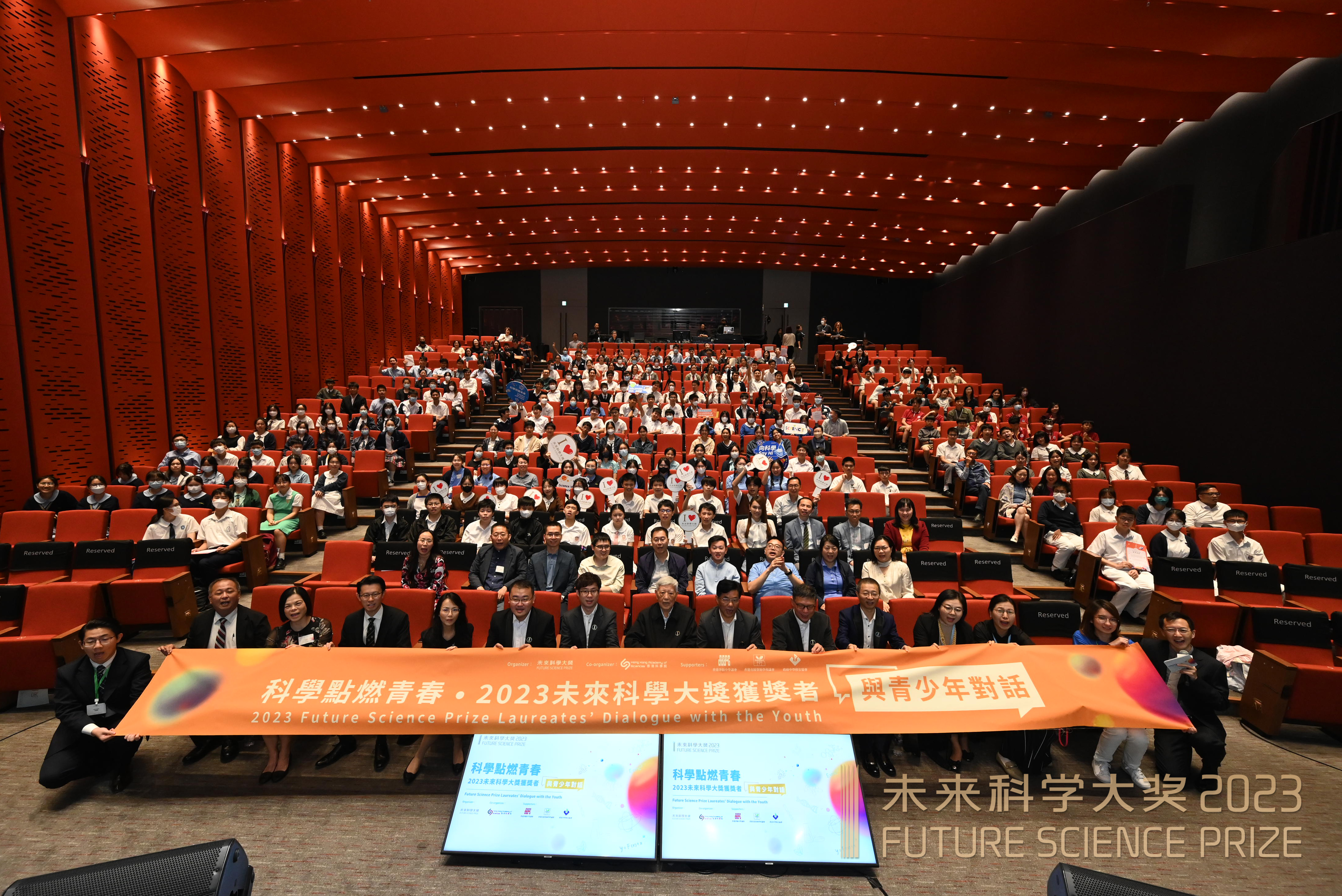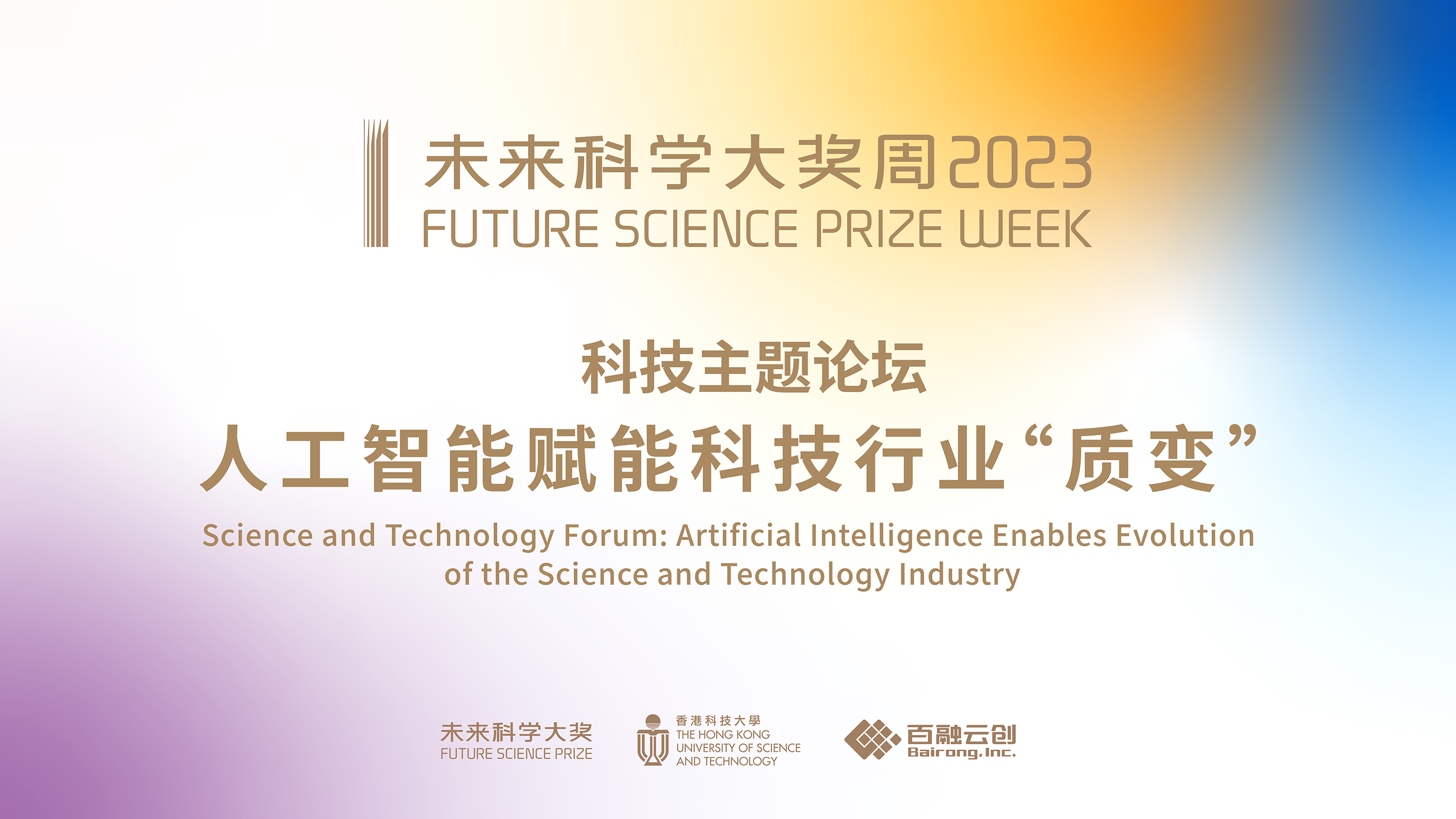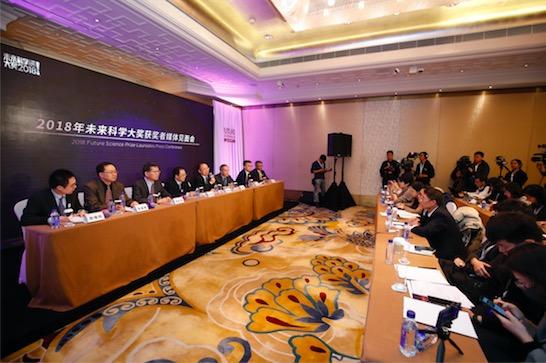Xu Chenyan was born in 1981. Compared with many people from the post-80s gen- eration in China who are still struggling for an ideal career, Xu seems to have it all.
When Xu was in middle school, he dem- onstrated a gift for mathematics and earned impressive results in various math competi- tions. After finishing his studies at Peking University and Princeton University in the U.S. as an algebraic geometry major, he started his career at the Beijing International Center for Mathematical Research of Peking University in 2013.
Xu is the recipient of the national science and technology (S&T) award for Chinese youths, the Ramanujan Prize and many other national and international honors. He has also completed 30 theses, 24 of which were published in famous international mathematics journals. But he is still modest. “I don’t see myself as a mathematician. I’m just a man of mathematics,” he said. “Exploring the subject is where my interest lies.” In September, Xu was awarded the 2017 Future Science Prize, which aims at reward- ing scientists that have made outstanding contributions to science and technology in China. He was the very first mathematician to win the prize, and also the youngest among this year’s laureates.
“Researchers and scholars like me are lucky to be in this era, because the government is investing heavily on S&T development, while business elites are also taking their share by making donations to this endeavor,” Xu said in a live video at the press conference of the 2017 Future Science Prize on September 9.
Future Science Prize
Established in January 2016, the Future Science Prize is a non-governmental prize initiated by Chinese scientists and entre- preneurs. Currently it has set up three categories, namely the Life Science Prize, the Physical Science Prize and the newly added Mathletics & Computer Science Prize. This year’s Life Science Prize and Physical Science Prize went to 50-year-old Shi Yigong from Tsinghua University and 47-year-old Pan Jianwei from the University of Science and Technology of China, respectively. Both have made breakthroughs in their fields of study in the past couple of decades.
The Future Science Prize uses interna- tionally famous and authoritative science prizes such as the Nobel Prize, the Fields Medal and the Turing Award as references, and also innovates in some aspects. For example, most of the international science awards have a single individual or one fam- ily donor, while each category of the Future Science Prize has four contributors.
The judgment committee in 2017 is composed of 15 senior scientists who have high reputations and major achievements in science and have a good understanding of China’s scientific development, since the award is targeted at people who have made outstanding contributions to science and technology in China.
“One more important criteria for judges is that they should be committed to what we do, and have a passion for the work,” said Ding Hong, one of the prize committee members and a researcher at the Institute of Physics of the Chinese Academy of Sciences, at the press conference and laureate an- nouncement ceremony.
Wang Xiaodong, Chairman of the 2017 Future Science Prize Committee explained that this year’s award-judging work was a marathon which began in March. The judg- ment committee received more than 800 recommendations from society and held several meetings before the final vote. “We went through such a long process because we want to make the judging as fair as possible, so as to establish our own cred- ibility,” Wang said. “We hope in the coming century the Future Science Prize can be- come China’s Nobel Prize.”
Nonetheless, one of the award’s do- nors—also the founding managing partner of Sequoia Capital China—Neil Shen expressed a slightly different opinion. He thought that it was unnecessary that the prize should emulate an overseas counter- part. “I believe we can make this reward a benchmark that’s one of a kind and help science really achieve the attention of the Chinese public.”
Although the award is aimed at people making contributions in China, other na- tionalities are not restricted. “The prizes are also open to foreign scientists. We welcome more of them to work in China and make contributions to the development of China’s S&T,” said Ding, who added that the prize can include a wider range of people.
Cultivating the young
What’s worth noticing is that each of the lau- reates can get a reward of $1 million, which is donated by contributors from business circles. All 12 donors have made a 10 year commitment to the program, resulting in a $250,000 donation per person each year. After being notified that he was awarded the prize, Xu said that he would consider al- locating some of the award money to set up prizes targeting young Chinese mathemati- cians. “As a young scholar myself, I have received support and am inspired by many successful predecessors. I hope I can return the favor by helping more scientists like me.” When asked about the reason why they choose to invest in such a non-business activity, Wu Ying, Chairman of China Capital Group, said that he was happy to do so. The country is paying unprecedented attention to S&T development, which can be shown in national strategies. But the fast development of the economy has its downside. “Things are materialized; people do things for mon- etary purposes. This leads to a lack of pure pursuit of science,” Wu noted. “The Future Science Prize encourages and recognizes the hard work of those who devoted them- selves to concrete deeds. It is also a call for more youths to join the league.”
Robin Li, CEO of Chinese Internet giant Baidu and also one of the prize’s donors, echoed Wu’s view. “Many people dream of being a scientist when they are a child, but the dream doesn’t usually come true when they grow up. Now we have a chance to make science more respected and attract more attention from future generations, so why not be a part of it”
Li said such prizes and activities are worthwhile as long as they can inspire more children to get on the path of scientific re- search and contribute to human progress.
The Future Science Prize serves as a pioneering endeavor made by the academic and business worlds. However, it is still at a nascent stage, and there’s much room for future improvement.
Pony Ma, Chairman and CEO of China’s Internet giant Tencent and one of the donors, expects further improvements in terms of judging and donation methods.
He also suggested that in future, the age threshold can be lowered so as to encourage more young people to participate. “I think the Future Science Prize can set up catego- ries for university students who come up with fruitful scientific results. This is a great way to consolidate the bases of China’s S&T development.”


